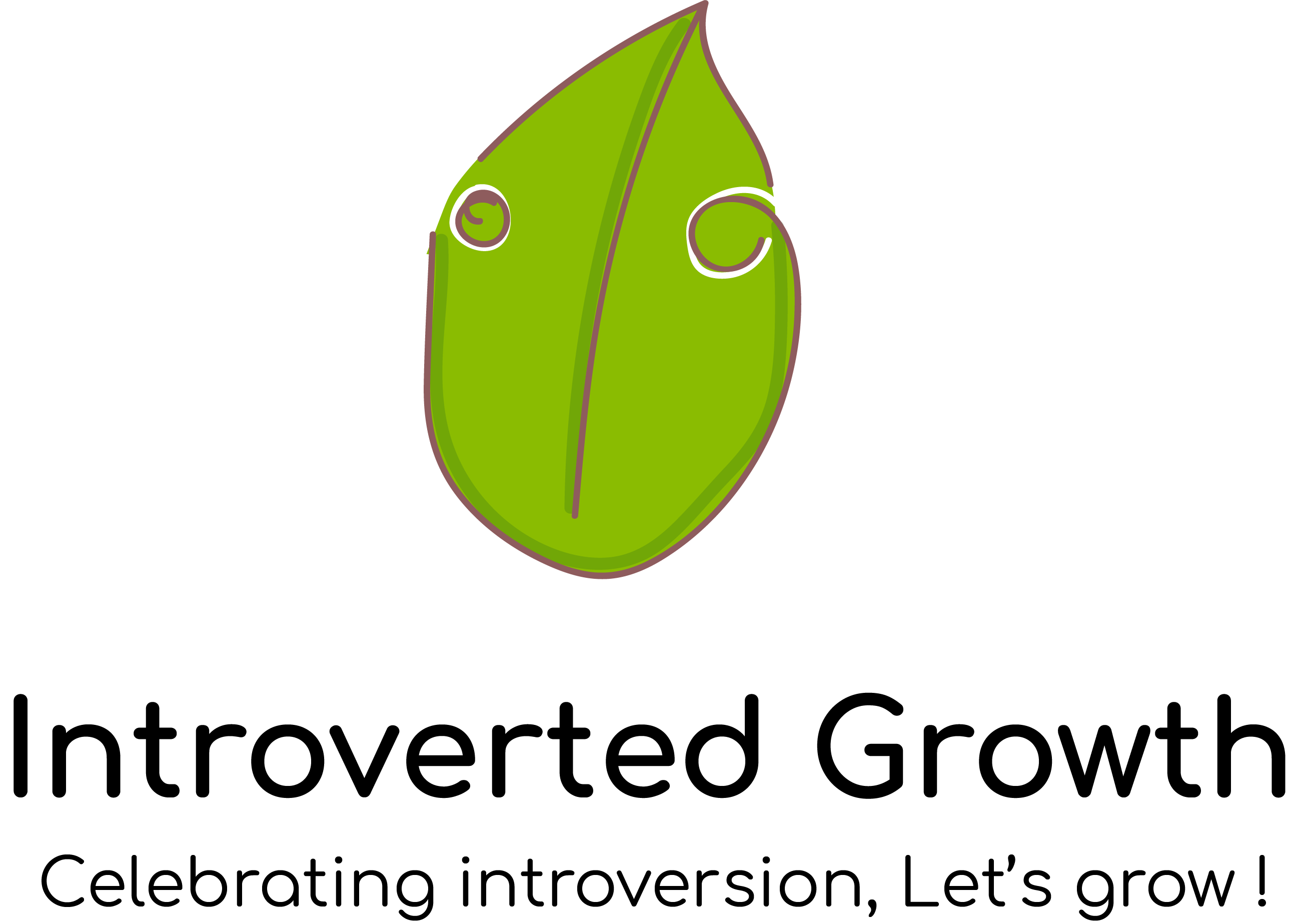If you’ve always been wondering ‘am I INTP or INFP’, then you’ve landed in the right place.
In this article, we will take a closer look at the similarities and differences between INTPs and INFPs, based on their cognitive functions to help you learn how to spot the difference between an INTP vs INFP to better identify your Myers Briggs personality type.
Let’s start by taking a look at their cognitive function stack
INFP vs INTP Cognitive Functions
The INTP Function Stack
- Dominant introverted thinking (Ti)
- Auxiliary extraverted intuition (Ne)
- Tertiary introverted sensing (Si)
- Inferior extraverted feeling (Fe)
The INFP Function Stack
- Dominant introverted feeling (Fi)
- Auxiliary extraverted intuition (Ne)
- Tertiary introverted sensing (Si)
- Inferior extraverted thinking (Te)
These Cognitive Functions Can be Further Explained as Follows:
- Dominant function: The most dominant of one’s mental processes; this is what people tend to use on a daily basis, such as when making decisions or solving problems.
- Auxiliary function: Under certain circumstances, the auxiliary can help support the dominant function by leading you to consider all possibilities. It usually helps explain your reasoning behind making decisions if there are multiple solutions found to be reasonable. This is known as “Harmony of the Four Functions”.
- Tertiary function: The Tertiary function is thought to be the least consciously developed than the other three. It would typically develop during adolescence and can help support your dominant and auxiliary functions, giving you access to a broader range of information and experiences so as to not feel limited by them
- Inferior function: This mental process tends to only come into play when we are under stress, and it typically involves a negative or immature version of the Dominant and Auxiliary functions. This is known as “The Opposing Personality”, and it often shows up when we feel inadequate in certain situations, causing us to lash out emotionally against others.
Major Similarities Between INTP and INFP
Based on their function stacks, you can see that both of them have dominant introverted functions( Ti and Fi) and they both share the same auxiliary and tertiary functions(Ne and Si ). This means that both of them will:
-Be introspective.
-Enjoy contemplating on their goals and ideals
-Be sensitive about how others perceive them
-Pursue activities that would allow them ample time alone to think or reflect
-Focus on resolving problems by finding unique solutions
-Seek out information or knowledge in order to gain a better understanding of how things work
-Use their Ne to imagine all the possible outcomes and Si to imagine themselves in their future lives.
Now despite these similarities, INTPs and INFPs have some notable differences.
11 Examples to Understand the INTP Vs. INFP Comparision
1. How They Observe The World:
- INTPs prefer to use an analytical approach when observing the world, focusing on objectivity and accuracy. They are good at organizing and structuring complex problems. Their strength lies in their ability to focus, taking the time to break down different theories, ideas, and concepts.
- INFPs prefer a subjective approach when observing the world, focusing on personal emotions and values. They are good at seeing life from other people’s perspectives and can easily pick up on how others feel and think. Their strength lies in their ability to empathize, stay attuned to the needs of others, and act accordingly.
2. How They Approach Problems:
- INTPs like to use a step-by-step approach when solving problems, using principles as the foundation for finding solutions. They start by looking at a problem through a purely objective lens before they form a hypothesis. They use their brain’s internal structure to understand the different components of a system, holding onto what they know to be true while searching for solutions.
- INFPs prefer to use a step-by-step approach when solving problems, using answers as the foundation for finding solutions. They start by looking at a problem through their own personal lens before they form a hypothesis. They use their brain’s internal structure to understand how things work and what makes sense, staying open-minded as they strive for closure.
3. How They Make Decisions:
- INTPs prefer the use of logic when making decisions, going with the option that leads to the best outcome according to a set of pre-determined rules. They tend to make decisions based on their own beliefs and theories, acting according to what makes sense instead of something they feel passionate about.
- INFPs prefer the use of feelings when making decisions, going with the option that feels right for everyone involved at the moment. They tend to make decisions based on their own values and desires, acting according to what gives them hope or dream. Something they feel passionate about.
4. How They Deal with Feelings
- INFPs tend to have a more intense emotional reaction when they are upset, sometimes feeling hurt by others even if it’s not intended. They can become withdrawn and saddened, needing time alone in order to process the situation with their Fi function.
- INTPs don’t typically experience emotional reactions that are as strong or intense. When they feel upset, they tend to have strong reactions in which they can still think logically. They will want time alone in order to process how they feel with their Ti function.
5. How They React Under Extreme Conditions
Both types will react in ways that are unusual to their natural preferences
- INFPs will become more productive, more organized, and well, workaholics just to avoid whatever that’s making them feel stressed. They will shut down, suppressing their emotions in order to get things done.
- INTPs are likely to have an emotional breakdown when stressed, withdrawing into themselves even if asked questions or spoken to. They may get distracted easily by small things that come up in order for them to avoid whatever that’s making them feel overwhelmed.
6. How They Deal with Conflict
- INFPs will withdraw when they are in conflict. They can become very emotional during the conflict, so they tend to avoid it. If they can’t do that they’ll try to see things from the other person’s perspective to understand their point of view.
- INTPs also tend to avoid conflict, even if they know that’s not the best way to deal with it. If they can’t avoid it, they’ll try to think logically about what went wrong and be blunt about what they think should be done in order to fix it.
7. How They Relate to Others
- INFPs will be more caring and affectionate, wanting everyone in their lives to get along and be happy. They enjoy taking the time to understand others and create connections with people who make them feel understood themselves.
- INTPs want to connect with people by discussing ideas, finding a mutual topic or passion that brings them together. If they can’t find anything to relate to, they’ll become bored and will want to part ways soon after meeting.
8. Their Connection With Friends and Family
- INFPs tend to be the peacemaker in their friend group, taking it upon themselves to ensure that everyone is getting along and happy with each other. They may feel like they have to take care of those around them and want people to depend on them, even if they don’t know how they’ll respond.
- INTPs tend to keep themselves distanced from their friends even if they’re in a social group together. They prefer to find one or two people who share a common interest with them and really connect with them on a deeper level.
9. How They Approach the World
- INFPs want to go by what feels right, following their own path in life. They want to make things happen for themselves and don’t like feeling constricted or controlled by others. That said, they do need time alone in order to process things and will avoid conflict when possible.
- INTPs go according to how logic tells them is the best thing to do at the time. They work hard to figure things out and can get caught up in theories or patterns that they may neglect their own well-being. They dislike feeling controlled by others, but do need time alone to process what’s going on around them.
10. How they perform in the Workplace
- INTPs will want everyone around them to be proactive about their positions and be aware of what’s going on. The last thing they want is for people to just sit around doing nothing, which can get frustrating if no one really cares about the work at hand.
- INFPs are likely to become very passionate about whatever project or task they are given to do. They want everyone in the workplace to work well together and will try to make that happen.
11. The Big Picture
- INFPs are more focused on the meaning of what’s happening in their lives rather than details. They think deeply about what it all means for them personally, wanting everything to have a significant impact on their own life story.
- INTPs are more focused on the end goal and what they need to do in order for it to be completed. Even though they’re not keen on planning every little step, in fact, they’re not big on structure, they do focus on the bigger plan of what needs to get done and how everything will play out eventually, wanting every moment to have a purpose even if it’s trivial.
FAQs
INTP vs INFP female: The Difference?
INFP females can be quite sensitive, but they’ll never let people know that because they genuinely try not to bring others down with them when they’re feeling emotional. INTPs females can be very analytical and seem to deduce what they’re feeling, even if there’s a lot of complexity involved in whatever mood they might be experiencing.
INTP And INFP Friendship Compatability?
Both INFPs and INTPs will likely have a small group of close friends, but they’ll do best with others who are similar to them. They may have some variety in their personalities, just not too much that will cause them to doubt themselves or feel restricted.
Can an INTP be mistaken for INFP?
The INTP may appear to be more soft-spoken and agreeable so they can be mistyped as an INFP, but they will likely seem more intense than the INFP, especially in the way that they carry themselves. Rather than appear empathetic and gentle like an INFP, an INTP may seem more intense about their interests in a way that seems almost menacing.
Is INTP better than INFP?
No, they’re not better or worse than each other, they’re just different. Whether you would accomplish more with an INTP or an INFP probably depends on how similar your interests are with them and what kind of relationship you have together.
Do INTPs like INFPs?
Yes, It’s possible that they can admire certain aspects of the INFP and see them as compatible. The INTP will likely try to build a strong friendship with the INFP first rather than jump into something serious, but they want to learn more about the INFP in every way possible.
Do INTPs and INFPs get along?
In the best case scenario, they will become very close friends who can learn a lot from each other. If they do get involved romantically, they’ll likely work through their differences and philosophical disagreements to make the relationship last. They may take breaks from each other every now and then because of the intensity of their feelings, but they will always come back to each other because they truly understand the other.
Are INFP and INFP compatible?
Even though they may seem ideal for each other, there are many differences that can cause them to feel misunderstood sometimes or like they don’t understand the other. They may feel that they’re not being enough of themselves or that they can’t relate to the other person or any combination of those things.
CONCLUSION
I hope you found this article helpful, if you did make sure to share it with your friends and leave your feedback in the comments below.
Be sure to check out my other articles about INTP and INFP Personality types!






